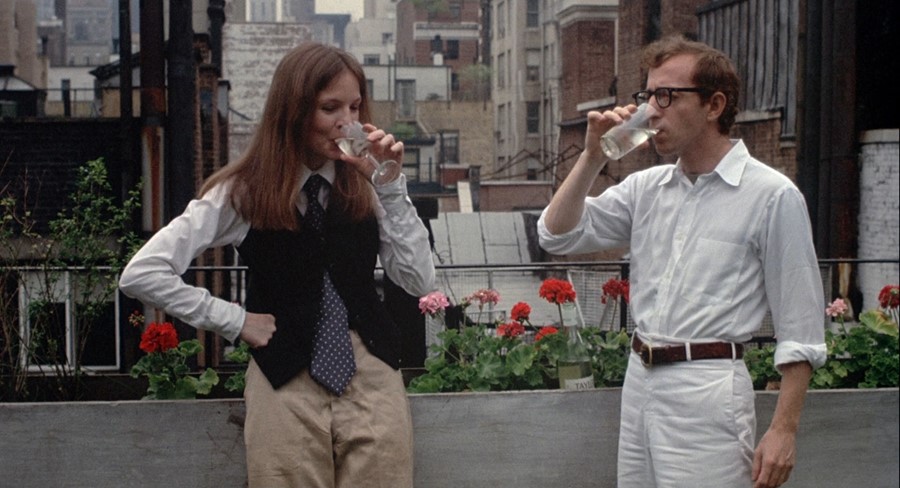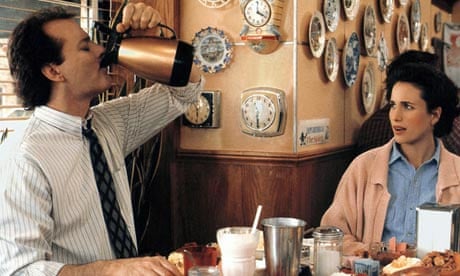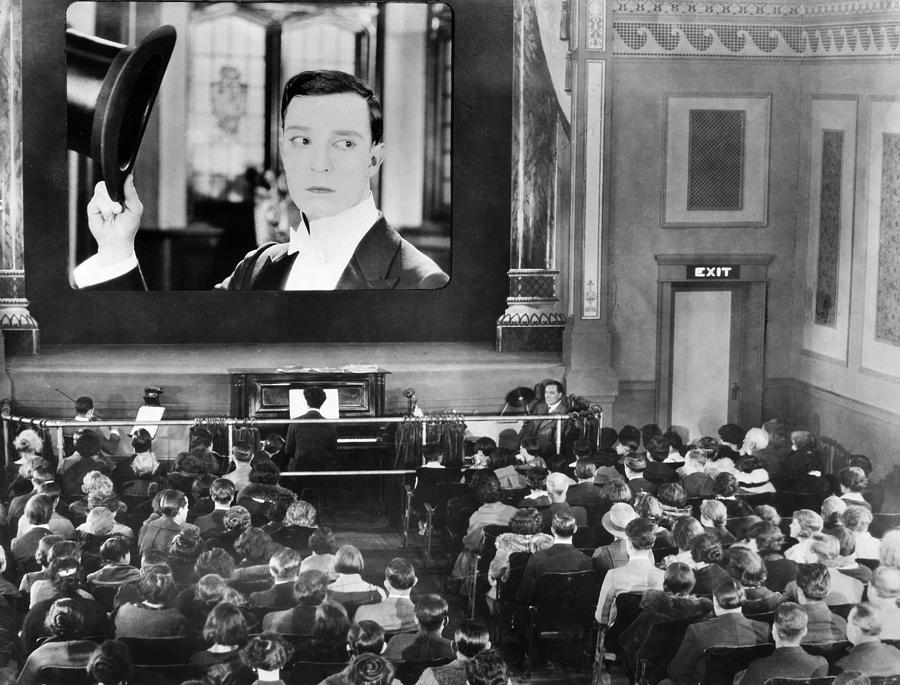Introduction
Lights, camera... screenplay? Before the dazzling performances and the awe-inducing cinematography, there's a heartbeat at the center of every movie - the script. Award-winning screenplays are often the unsung heroes behind cinematic masterpieces. This article is not just about celebrating these written wonders; it's an ode to their sheer brilliance, and, occasionally, to their utterly befuddling choices. What compels us to discuss these select ten? They've made us rethink, rejoice, and on rare occasions, regret our popcorn choices.
Selecting the screenplays for this list wasn't akin to picking the cutest puppy at a pet store; it required some serious screenplay analysis. We had to sift through classics, embrace modern masterpieces, and sometimes, shake our head at scriptwriting decisions. But what's a good critique without a personal touch, right? And it's not just about having a "top-rated movie screenplay of all time" title. Whether it's an original thought or a brilliantly adapted one, the real question was: does it have that 'oomph' factor? The stuff that makes you go, "Damn, that's good," even if you're reclining on your couch in your PJs.
Chinatown written by Robert Towne

Credits to: Washington Post

Order the Blu-Ray

Watch on Amazon Prime
Chinatown, a neo-noir masterpiece directed by Roman Polanski and penned by Robert Towne, saw the light of day in 1974. It’s a concoction of mystery, crime, and historical narrations, brewing under the golden California sun. This film isn’t just a flick; it’s a jaunt back to the corrupt, water-starved Los Angeles of the 1930s. Towne’s screenplay, an intricate web of deceit and moral ambiguity, doesn’t just tell a story; it teaches a history lesson cloaked in cinematic brilliance.
Set against a backdrop of a drought-stricken LA, the story follows a cynical but sharp-witted private eye, J.J. Gittes, played by Jack Nicholson. As he digs deeper into a seemingly mundane infidelity case, he unearths a nefarious plot revolving around water rights. Each character, from the elusive Evelyn Mulwray to the menacing Noah Cross, is a puzzle piece in a jigsaw of greed, power, and loss. The dialogue is witty, the plot twists are sharper than a dagger, and the ambiance, murky with moral degradation.
Why it's on the list: The screenplay of Chinatown is nothing short of a masterclass in narrative construction and character development. Its ability to intertwine historical facts with a fictional detective tale lands it a prestigious spot on our Best Movie Screenplays list. Towne’s script isn’t just a narrative; it’s a tight-knit fabric of dialogues, dramatic irony, and a grim reflection of the human condition. It’s no surprise that it snatched an Oscar for Best Original Screenplay, affirming its spot in the annals of scriptwriting excellence.
Why you should watch it: Chinatown isn’t just a film; it’s a meticulous study of screenplay craftsmanship. The way it peels back the layers of corruption within a historical context, while keeping the audience on the edge of their seats, is nothing short of mesmerizing. It’s a canvas where every dialogue is a stroke of genius, every character a shade of moral ambiguity, and every plot twist, a splash of cold, hard reality. It’s not merely a viewing experience; it’s a masterclass in storytelling, one that any cinephile would be remiss to skip.
Why you shouldn't watch it: But be warned, Chinatown isn’t for the faint of heart. Its narrative plunges into the abyss of moral decay, and not everyone's ready for such a bleak reflection of humanity. The complex plot could tie your brain in knots, and the grim reality it portrays might linger longer than you’d like. If you’re looking for a light-hearted watch, this isn’t your stop. Chinatown is a profound, albeit harrowing, dive into the dark underbelly of human desire and societal corruption.
12 Angry Men written by Reginald Rose

Credits to: Roger Erbert

Order the Blu-Ray

Order the Book

Watch on Amazon Prime
Here's a courtroom drama that’s as tense as a tightly wound clock spring, 12 Angry Men, brought to life in 1957 by the keen pen of Reginald Rose and the discerning lens of Sidney Lumet. Within the stifling confines of a deliberation room, Rose weaves a microcosm of societal prejudices and individual biases, a bold endeavor during a time when conformity was the norm.
A single, sweltering room is the battlefield where twelve jurors dissect a murder case that seems straightforward at first glance. However, as the dialog unfolds, so does each character’s personal baggage, casting a shadow of doubt over what justice really means. It’s a cauldron of clashing personalities and moral dilemmas, spearheaded by a lone juror who urges the others to look beyond their prejudices and consider the possibility of innocence.
Why it's on the list: Rose’s screenplay is a stark, unyielding examination of human nature under duress, securing its rightful place among the Best Movie Screenplays. The script’s simplicity is its strongest suit, proving you don’t need grandiose settings or extravagant narratives to delve into the human psyche. It's a robust testament to the power of dialogue and the impact of a well-crafted character arc. It’s not just a screenplay; it’s a moral compass in a world quick to judge and slow to understand.
Why you should watch it: 12 Angry Men is a rollercoaster of human emotions, a compelling narrative that holds a mirror to society’s face. The brilliance of the script lies in its ability to strip down complex human emotions to a bare, raw discussion of right and wrong. It’s not just a film; it’s a conversation starter, a catalyst for introspection, and a stark reminder of the power and responsibility that comes with a verdict. It’s more than a classic; it’s a timeless discourse on justice and morality.
Why you shouldn't watch it: But caution, the simplicity of 12 Angry Men might not cater to those thirsting for visual spectacles or action-packed sequences. Its strength lies in its dialogue, not in its set pieces. If you’re not one for heavy dialogues and moral quandaries, this movie might feel more like a lecture than a thrilling cinematic experience. The minimalistic setting could either be a masterstroke or a monotonous backdrop, depending on your cinematic palate.
Casablanca written by Julius J. Epstein, Philip G. Epstein, and Howard Koch

Credits to: The Hollywood Reporter

Order the Blu-Ray

Watch on Amazon Prime
A tale spun in the turbulent times of World War II, brought to the silver screen in 1942 by a trio of scriptwriting maestros: Julius J. Epstein, Philip G. Epstein, and Howard Koch. Under Michael Curtiz’s directorial gaze, this war-torn love story blossomed into a timeless classic. The screenplay is a rich tapestry of romance, sacrifice, and the undeniable pull of moral duty against the backdrop of a world in chaos.
Set in the murky, politically-charged waters of wartime Morocco, the narrative follows Rick Blaine, a cynical expatriate whose heart still beats for the luminous Ilsa Lund. Amidst the war cries and the crooning of “As Time Goes By,” love blooms, rekindles, and faces the unforgiving trials of war. Every character, from the hardened Rick to the villainous Major Strasser, is a cog in the complex machinery of love, loss, and loyalty.
Why it's on the list: Casablanca’s screenplay is a masterful blend of witty dialogue, emotional depth, and political resonance, making it a titan in our Best Movie Screenplays list. It’s a script that transcends its time, resonating through the ages as a tale of love, sacrifice, and the unyielding march of moral duty. The Epsteins and Koch didn’t just pen a screenplay; they etched a narrative into the annals of cinematic history, one that continues to tug at heartstrings and stir the embers of patriotism.
Why you should watch it: Casablanca isn’t just a movie; it’s a journey through the corridors of love and the tumultuous seas of war. With every line of dialogue, it etches a narrative that’s as enduring as the love it portrays. It’s a foray into a time where love was the flickering flame amidst the darkness of war. The script is a brilliant concoction of humor, heartache, and heroism. If the line “Here’s looking at you, kid” doesn’t stir something within you, check your pulse!
Why you shouldn't watch it: The bygone era charm of Casablanca might not resonate with those accustomed to the fast-paced, high-octane narratives of modern cinema. It’s a slow burn, a gentle unraveling of emotions against a war-torn tapestry. If you’re seeking adrenaline-pumping action or mind-bending plot twists, Casablanca might come off as a quaint relic. Yet, it’s a relic that continues to shimmer with the undying luster of love and the indomitable spirit of heroism.
Also check this article out:
Pulp Fiction written by Quentin Tarantino and Roger Avary

Credits to: IMDb

Order the Blu-Ray

Watch on Amazon Prime
The gritty, whimsical world of Pulp Fiction, a crown jewel in the oeuvre of Quentin Tarantino and Roger Avary. This 1994 magnum opus isn’t just a film; it’s a genre-bending joyride through the underbelly of Los Angeles. With its non-linear storytelling and a cavalcade of quirky, unforgettable characters, Pulp Fiction didn’t just influence a generation of filmmakers; it redefined what cinema could be.
Welcome to a realm where hitmen philosophize about European hamburgers, and overdoses are resolved with adrenaline shots to the heart. The story is a kaleidoscopic jumble of interlocking narratives, each infused with Tarantino's trademark wit and penchant for the violent. From Vincent Vega's cool dance moves to Jules Winnfield's Biblical fury, every scene is a meticulous meld of humor, dread, and that iconic Tarantino dialogue.
Why it's on the list: Pulp Fiction finds its rightful place on our Best Movie Screenplays list for its audacious narrative style and its indelible mark on pop culture. The screenplay is a robust engine driving a complex narrative filled with sharp dialogues and dark humor. It’s a work that scoffs at conventional storytelling, opting instead for a fragmented narrative that keeps you guessing, laughing, and recoiling in shock. It’s not just a script; it’s a cultural phenomenon.
Why you should watch it: Dive into Pulp Fiction and you're not just watching a film; you're experiencing a cultural artifact that dances to the beat of its own quirky, erratic drum. The script is a banquet of witty dialogues, peculiar characters, and scenarios that oscillate between the hysterical and the horrifying. It’s a masterclass in storytelling, a showcase of how a screenplay can break conventional molds and still resonate with audiences on a profound level.
Why you shouldn't watch it: Pulp Fiction isn’t a stroll in the park. It’s a wild, sometimes disturbing romp through a landscape filled with violence and moral ambiguity. If you’re seeking a linear narrative or wholesome tales, this isn't your cup of tea. The film's casual dalliance with violence and its kaleidoscopic narrative structure could be disorienting for some. But then, that’s the savage beauty of Pulp Fiction, isn’t it?
No Country for Old Men written by Joel Coen and Ethan Coen

Credits to: Letterboxd

Order the Blu-Ray

Order the Book

Watch on Amazon Prime
No Country for Old Men, penned by the Coen brothers, is a chilling ballad of violence and existential dread set against the barren Texan landscape. This 2007 film is not just a cat-and-mouse chase; it's a bleak meditation on fate, morality, and the relentless march of evil.
The story, a ruthless ballet of bloodshed, follows the taciturn hunter Llewelyn Moss, who stumbles upon a drug deal gone awry and takes a suitcase full of cash, setting off a chain of violence that’s as relentless as the chilling antagonist, Anton Chigurh. Amidst the gunshots and the haunting silence, Sheriff Ed Tom Bell contemplates the unstoppable tide of violence that the modern world breeds.
Why it's on the list: No Country for Old Men earns its spot on our Best Movie Screenplays list with its sparse yet potent dialogue, and its ability to create suspense that clings to your skin like a cold sweat. The Coen brothers sculpt a narrative that’s as barren and unforgiving as the landscape it traverses. It's a screenplay that doesn’t just tell a story; it delves into the philosophical abyss, probing the nature of evil and the frailty of human existence.
Why you should watch it: The genius of No Country for Old Men lies in its ability to wield silence as a weapon, to let the unsaid words echo through the desolate landscape. It’s a journey that’s as thrilling as it is thought-provoking. The screenplay is a masterful blend of suspense, philosophical musings, and a relentless exploration of the human condition. It’s not just a film; it’s a haunting ode to the inexorable march of fate and the darkness that lurks within.
Why you shouldn't watch it: Brace yourself for the bleakness of No Country for Old Men might prove to be a heavy burden. Its narrative is a grim dance with death, devoid of the catharsis one might seek in conventional storytelling. If you yearn for a glimmer of hope or a tidy resolution, this tale might leave you in the cold, pondering the relentless nature of evil and the somber echoes of despair.
The Social Network written by Aaron Sorkin

Credits to: The New York Times

Order the Blu-Ray

Order the Book

Watch on Amazon Prime
The Social Network, scripted by the wordsmith Aaron Sorkin, isn’t just a biopic; it’s a riveting exploration of ambition, betrayal, and the price of unprecedented success. Released in 2010 under David Fincher’s meticulous direction, this film dives into the turbulent waters of Mark Zuckerberg’s journey in birthing Facebook, the social networking behemoth.
The narrative unfolds through a series of high-stakes lawsuits, flashbacks, and razor-sharp dialogues, painting a portrait of Zuckerberg as a genius, an outcast, and a betrayer. The characters, from the Winklevoss twins to the affable Eduardo Saverin, are entangled in a web of ambition, envy, and the quest for digital domination. Sorkin’s script crackles with intellectual vigor, wit, and a subtle undercurrent of melancholy.
Why it's on the list: The Social Network graces our Best Movie Screenplays list for its incisive dialogue, complex characters, and a narrative that’s as engaging as it is enlightening. Sorkin doesn’t just lay out the facts; he delves into the emotional and moral quagmire of the digital age. The screenplay is a dazzling display of narrative structure, character development, and a scintillating exploration of the cost of innovation.
Why you should watch it: Embarking on The Social Network’s narrative voyage is akin to diving into the turbulent, exhilarating waters of modern-day ambition and innovation. It’s a film that holds a mirror to the digital generation, exploring the intoxicating allure of success and the casualties it leaves in its wake. The screenplay is a tour de force, a riveting dance of words and emotions that paints a multi-faceted portrait of Mark Zuckerberg and the digital empire he built.
Why you shouldn't watch it: If you’re seeking a sugar-coated narrative or a hero’s triumphant tale, The Social Network might not satiate your cinematic appetite. Its narrative is a stark, unflinching examination of genius and jealousy, ambition and alienation. The cold digital landscape and the relentless quest for supremacy might leave a bitter taste, but then, that’s the essence of The Social Network, a brilliant yet bleak reflection of the digital zeitgeist.
Also check this watchlist out:
Annie Hall written by Woody Allen and Marshall Brickman

Credits to: Another Magazine

Order the Blu-Ray

Watch on Amazon Prime
the whimsical breath of fresh air that is Annie Hall, sprung from the ingenious minds of Woody Allen and Marshall Brickman in 1977. This film isn't merely a romantic comedy; it's a tender, introspective exploration of love, identity, and the quintessence of human connection, all set against the ever-charming backdrop of New York City.
Dive into the quirky romantic entanglements of Alvy Singer, a neurotic comedian, and Annie Hall, a whimsical, free-spirited woman. Their love story, filled with intellectual banter and heartfelt moments, unfolds like a cherished, albeit slightly frayed, old book. The script zings with witty dialogue, self-deprecating humor, and a generous sprinkling of existential musings, making it a veritable rollercoaster of emotions.
Why it's on the list: Annie Hall is a titan in the realm of Best Movie Screenplays due to its keen ability to weave humor with heart, intelligence with intimacy. Allen and Brickman didn't just write a script; they crafted a narrative delight that peeks into the human heart with a gentle, comedic eye. Its dialogue is sharp, its characters memorable, and its insights into love and life are as profound as they are amusing.
Why you should watch it: Annie Hall is more than a movie; it's a warm, witty conversation with old friends about the bittersweet nature of love. Its script is a delightful jaunt through the meandering path of romantic entanglements, filled with laughs, tears, and the kind of insights that stay with you long after the credits roll. If you're a sucker for smart dialogue and tender moments wrapped in humor, this is a film that should not be missed.
Why you shouldn't watch it: If you're on the hunt for a conventional rom-com with neatly tied resolutions, Annie Hall might throw you a curveball. Its narrative delves into the messy, complicated nature of relationships, and its ending is as realistic as it is bittersweet. The intellectual banter, while charming, might come off as too cerebral for those craving a straightforward love story. But then, isn't love itself a complex, beautifully confusing entity?
Citizen Kane written by Herman J. Mankiewicz and Orson Welles

Credits to: The Hollywood Reporter

Order the Blu-Ray

Watch on Amazon Prime
Citizen Kane, the brainchild of Herman J. Mankiewicz and Orson Welles, isn't just a film; it's a cornerstone of cinematic history. Released in 1941, this narrative behemoth dives into the labyrinthine life of Charles Foster Kane, a wealthy magnate with a heart shrouded in mystery and melancholy.
The tale unfolds through a series of flashbacks, as a reporter seeks to decipher the meaning behind Kane's enigmatic last word, "Rosebud." The screenplay is a rich tapestry of human ambition, loss, and the relentless quest for love and validation. Each dialogue, each scene is a meticulous piece in a grand, tragic puzzle that is Kane's life.
Why it's on the list: Citizen Kane's screenplay is a masterful concoction of narrative innovation and profound character exploration, placing it firmly on our Best Movie Screenplays list. Mankiewicz and Welles crafted not just a story, but an intricate narrative architecture that has stood the test of time. It's a study in storytelling excellence, a script that delves deep into the human psyche while pushing the boundaries of cinematic technique.
Why you should watch it: Immersing oneself in Citizen Kane is akin to enrolling in a masterclass of narrative brilliance. The screenplay is a narrative tour de force that unveils the complex layers of ambition, love, and the human quest for meaning. It's not just a film; it's a monumental piece of cinema that explores the profound, often painful intricacies of human existence.
Why you shouldn't watch it: Yet, the very grandeur of Citizen Kane might be its stumbling block for some. Its narrative depth and complex storytelling techniques could come across as daunting for those seeking a lighter cinematic fare. The film's somber tone and intricate narrative could be a heavy meal for those in search of a light snack. But ah, what a sumptuous, enriching meal it is!
The Godfather written by Mario Puzo and Francis Ford Coppola

Credits to: Cr: Vanity Fair

Order the Blu-Ray

Order the Books

Watch on Amazon Prime
The Godfather, birthed by the narrative prowess of Mario Puzo and Francis Ford Coppola, isn't merely a film; it's a monumental saga of power, family, and moral decay. Set amidst the dark underbelly of the Italian-American mafia, this 1972 epic isn’t just a crime drama; it’s a profound exploration of the human soul ensnared in the clutches of power.
Venture into the Corleone family's world, where loyalty is law, power is pursued with ruthless precision, and morality is a luxury often cast aside. The story, a turbulent river of love, betrayal, and deadly ambition, unfolds with a gravitas that holds you in its grip. The dialogue is sharp and memorable, each line echoing with the weight of familial duty and the harsh reality of a life steeped in crime.
Why it's on the list: The Godfather earns its revered spot on our Best Movie Screenplays list with its captivating narrative, complex characters, and a profound exploration of the corrosive nature of power. Puzo and Coppola crafted a masterpiece that transcends its genre, delving into the heart of darkness that beats within the human soul when entangled in a web of power and crime. It's a script that resonates through the annals of cinematic history.
Why you should watch it: Stepping into the world of The Godfather is akin to embarking on a riveting, albeit harrowing, journey into the heart of darkness. The screenplay is a mesmerizing blend of narrative excellence and character depth, each scene a brushstroke on a dark, compelling canvas. It’s more than a film; it’s a narrative experience that explores the bleak yet captivating realm of power, loyalty, and the human condition.
Why you shouldn't watch it: The Godfather’s narrative waters are dark and deep. The tale is a grim dance with death, a peek into a world where morality takes a backseat to power and vengeance. If you’re in search of a light-hearted narrative or a clear moral compass, The Godfather might be a tough pill to swallow. Yet, it’s a pill that reveals the stark, captivating reality of a life led in the shadows of power and crime.
Groundhog Day written by Danny Rubin and Harold Ramis

Credits to: The Guardian

Order the Blu-Ray

Watch on Amazon Prime
Groundhog Day, a gem sculpted by the imaginative minds of Danny Rubin and Harold Ramis, isn’t just a film; it’s a philosophical inquiry wrapped in humor and heart. Unveiled to the world in 1993, this narrative marvel transcends the boundaries of a conventional comedy, escorting us through a time-loop of self-discovery, redemption, and of course, unending déjà vu.
Details:
Delve into the whimsically repetitive world of Phil Connors, a cynical weatherman caught in a time loop, reliving the same day in the quaint town of Punxsutawney. Each day is a mirror reflecting Phil’s evolution from a self-absorbed cynic to a man of empathy and insight. The screenplay sparkles with witty dialogue, heartfelt moments, and a subtle, profound exploration of human existence, all woven together with a thread of humor.
Why it's on the list:
Groundhog Day lands a coveted spot on our Best Movie Screenplays list with its unique blend of humor, heart, and existential pondering. Rubin and Ramis didn't just pen a script; they crafted a narrative experience that is as thought-provoking as it is delightful. The screenplay is a brilliant concoction of humor, personal transformation, and a gentle nudge to reflect on our own existence, making it a timeless piece of narrative artistry.
Why you should watch it:
Immerse yourself in Groundhog Day and you’re in for more than just a hearty laugh; you're embarking on a philosophical journey with a comedic compass. The script is a delightful blend of humor and heart, a narrative that nudges you to reflect, laugh, and perhaps, see the world with a slightly gentler gaze. It’s not just a movie; it’s a warm, witty exploration of the human condition that resonates long after the laughter fades.
Why you shouldn't watch it: If you're on a quest for a straightforward comedic venture or a linear narrative, Groundhog Day might throw you for a loop—pun intended. Its repeated scenes, though integral to the narrative arc, might test the patience of those yearning for a more fast-paced, ever-changing plot. Yet, within the repetition lies the magic, the humor, and the heart that makes Groundhog Day a narrative treasure worth revisiting.
Conclusion
So, after devouring hours and hours of film, analyzing the craftsmanship behind each scene, and maybe shedding a tear or two, here we stand. The magnificence of 'Chinatown', the raw emotion of '12 Angry Men', the iconic dialogues from 'Pulp Fiction', and the list goes on. But it's not just about praising them. Oh no, we'll be delving into their quirks, their unique qualities, and yes, their moments of "scriptwriting excellence" (and the moments that make us scratch our heads).
As we wrap up this cinematic journey through the best original and adapted screenplays, it's essential to remember one thing: art is subjective. What makes 'The Social Network' a compelling watch for some might be a snore-fest for others. And that's alright! Isn't that the beauty of cinema? Whether you agree with this list or not, one thing's for sure - each film mentioned here has left an indelible mark on the world of cinema. Love them or debate them; these scripts are here to stay. Shall we raise our popcorns to that?


